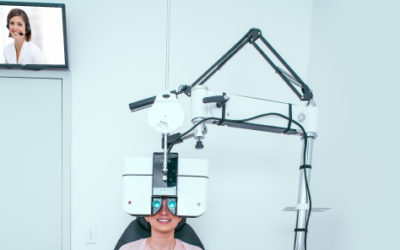According to the American Optometric Association (AOA), there are no early signs or symptoms for many eye conditions. Because of this, the AOA recommends seniors get an eye exam each year.
The most common eye conditions among seniors are age-related macular degeneration, cataracts, diabetic eye disease, dry eye, and glaucoma. Although the AOA recommends annual routine eye exams for people 60 years or older, Medicare usually doesn’t cover routine eye care. However, Medicare does provide some eye health coverage.
Eye Health Services that Medicare DOES Cover
There are about four specific circumstances where Medicare Part B may cover vision care.
Age-Related Macular Degeneration (AMD)
AMD usually affects people age 50 or older and usually worsens over a period of years. However, the condition can progress faster for some people. AMD ultimately affects the central vision of the eye, making it difficult to perform daily tasks.
If a Medicare beneficiary suffers from AMD, then Part B may cover some diagnostic tests and treatments for certain eye conditions. If Part B does cover these services, the beneficiary pays 20% of the bill plus an annual deductible, and Part B covers 80%.
Cataracts
When someone has cataracts, which means his or her lens has become cloudy and is causing vision problems. Cataracts mainly cause vision problems such as blurriness and darkness.
Fortunately, Medicare Part B covers surgery for cataracts. There are two main types of cataract surgery: traditional cataract surgery and laser surgery. Part B covers both of these procedures.
Remember, however, that if your surgeon doesn’t accept Medicare assignment, you could pay more than your 20% out of pocket for the procedure.
With cataract surgery, you can usually choose between basic and advanced lens implants. Medicare only covers basic lenses, so if you choose advanced lens implants, you pay the full cost of the lenses.
Diabetic Retinopathy
Diabetic retinopathy can occur as a result of having diabetes. As blood vessels are damaged, they can leak blood, which ultimately damages the retina. Vision problems that can occur with diabetic retinopathy include blurriness, darkness, color blindness, and blindness.
If you have diabetes, Part B covers an annual eye exam for diabetic retinopathy. For this service, you pay 20% coinsurance, and your Part B deductible applies.
Glaucoma
According to the National Eye Institute, in the United States, glaucoma is one of the main causes of blindness. Glaucoma consists of multiple diseases that damage the optic nerve. Common vision problems people with glaucoma suffer from are blurriness, distorted vision, and vision loss.
If you are at risk for developing glaucoma, Part B covers a glaucoma test, also called tonometry, once a year. Medicare considers beneficiaries to be at risk for developing glaucoma if they have diabetes, have a history of glaucoma, are over 50=years-old and African American, or are over 65-years-old and Hispanic.
Beneficiaries who qualify for tonometry coverage pay 20% of the bill as well as their Part B deductible.
Eye Health Services Medicare DOESN’T Cover
As mentioned previously, Medicare usually doesn’t cover routine eye care. Some examples of routine eye care procedures include refraction tests, slit-lamp examinations, visual field tests, and retinoscopy tests.
Additionally, while Medicare also doesn’t typically cover glasses or contact lenses, Part B may cover one pair of glasses or a set of contact lenses is after the beneficiary has had cataract surgery.
If you are uncertain what type of vision test you need, consult with your optometrist. Customers learn about promotions and schedule an appointment online at stantonoptical.com, by phone at (877) 518-5788, or walk-in.




